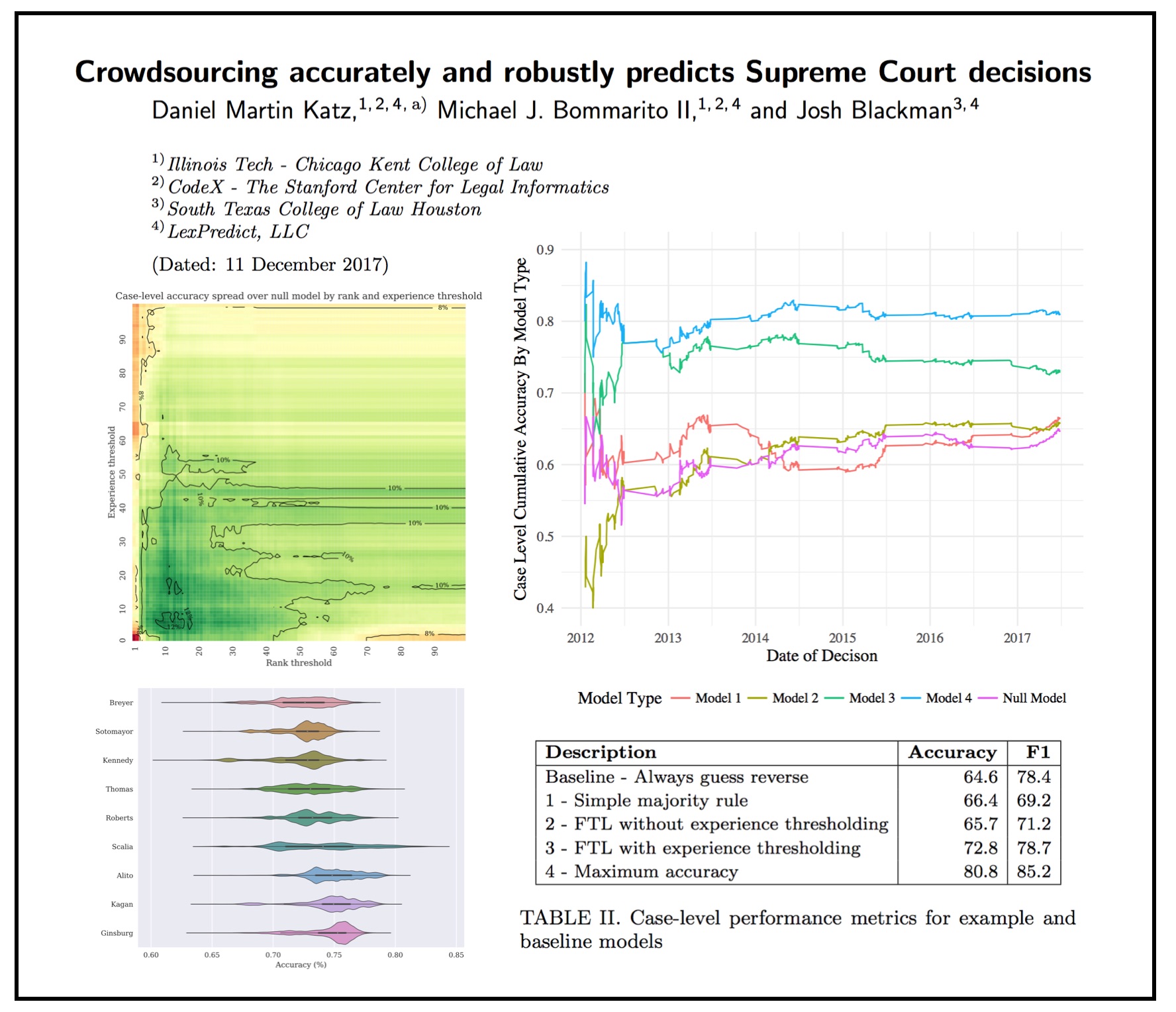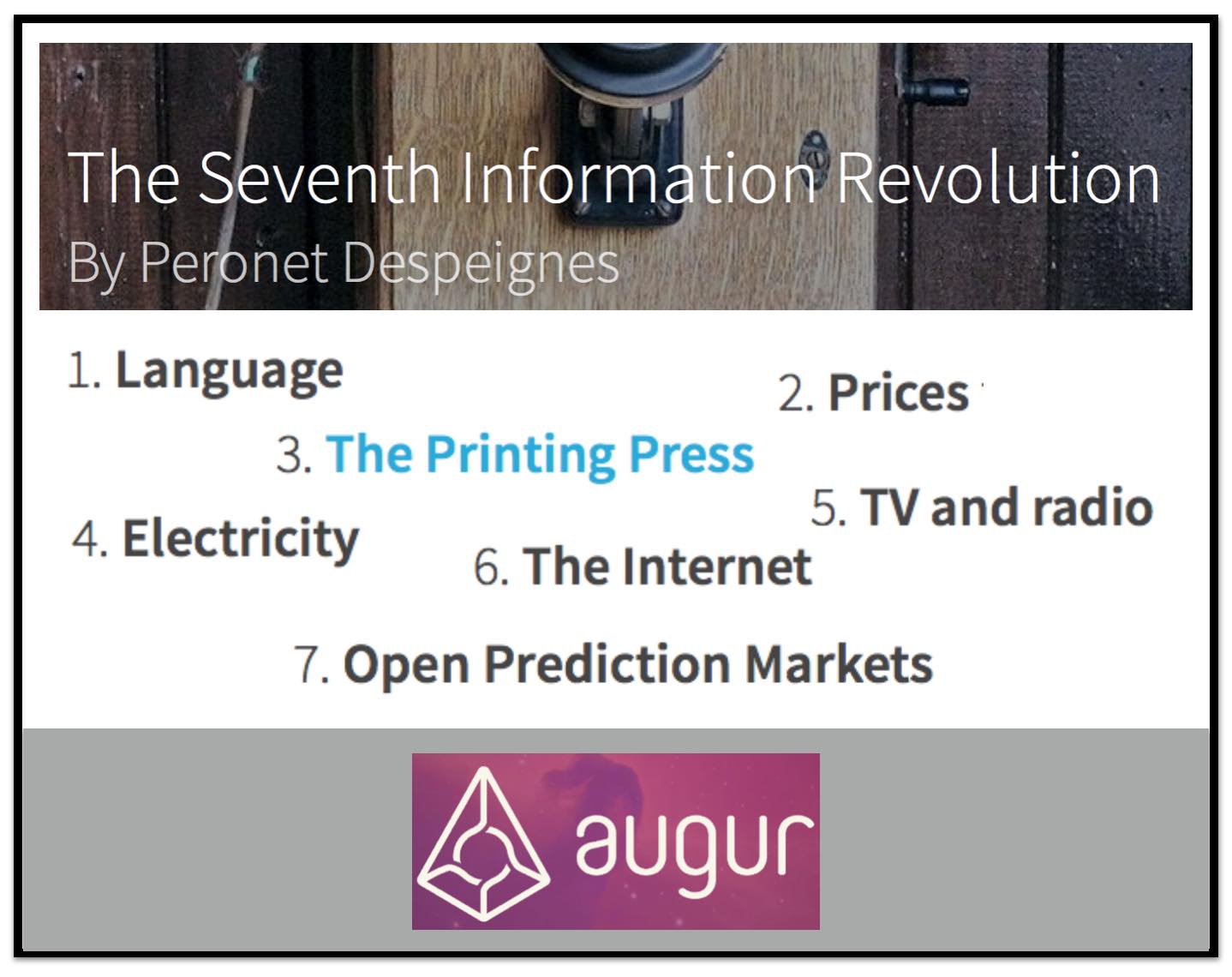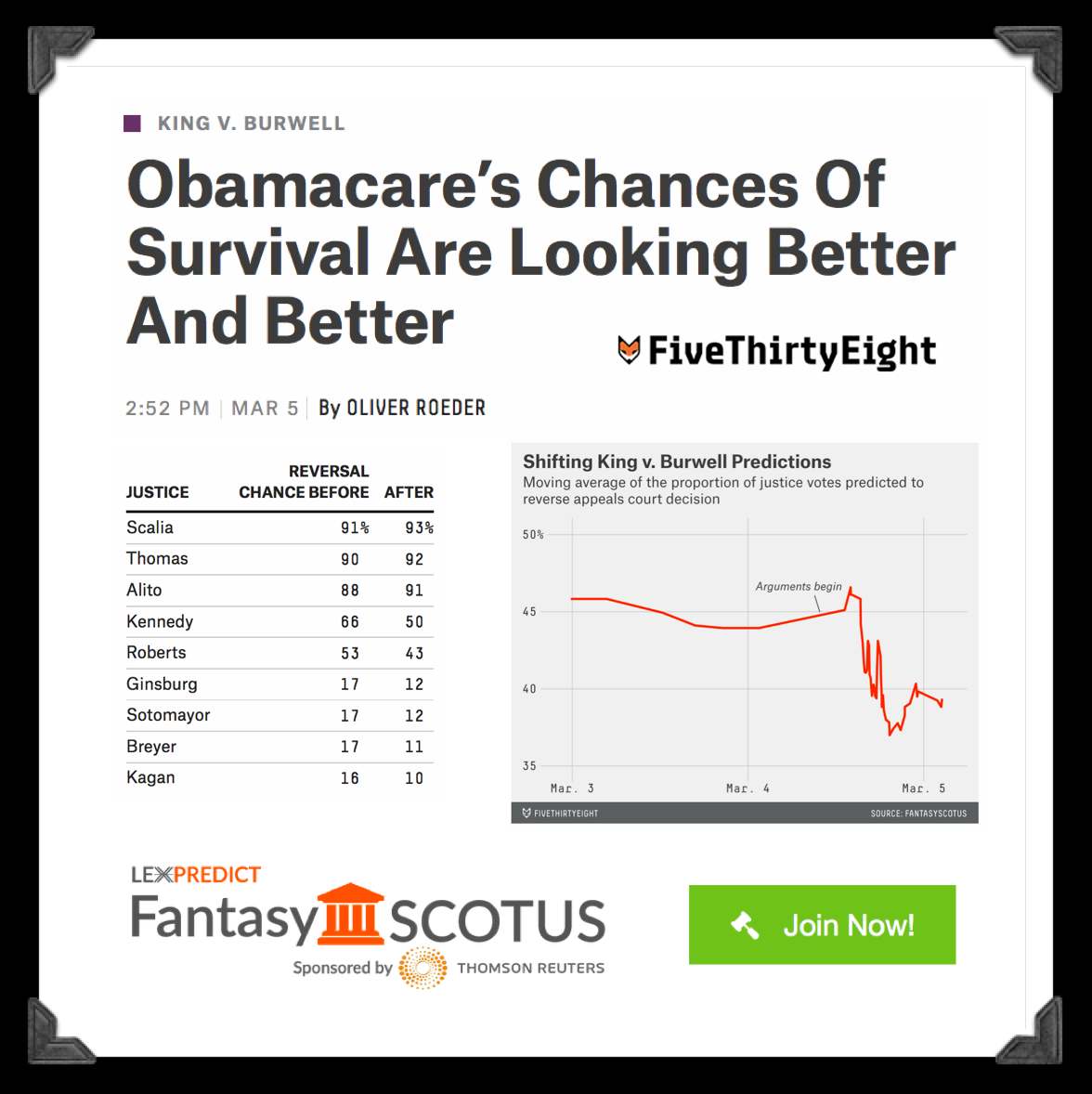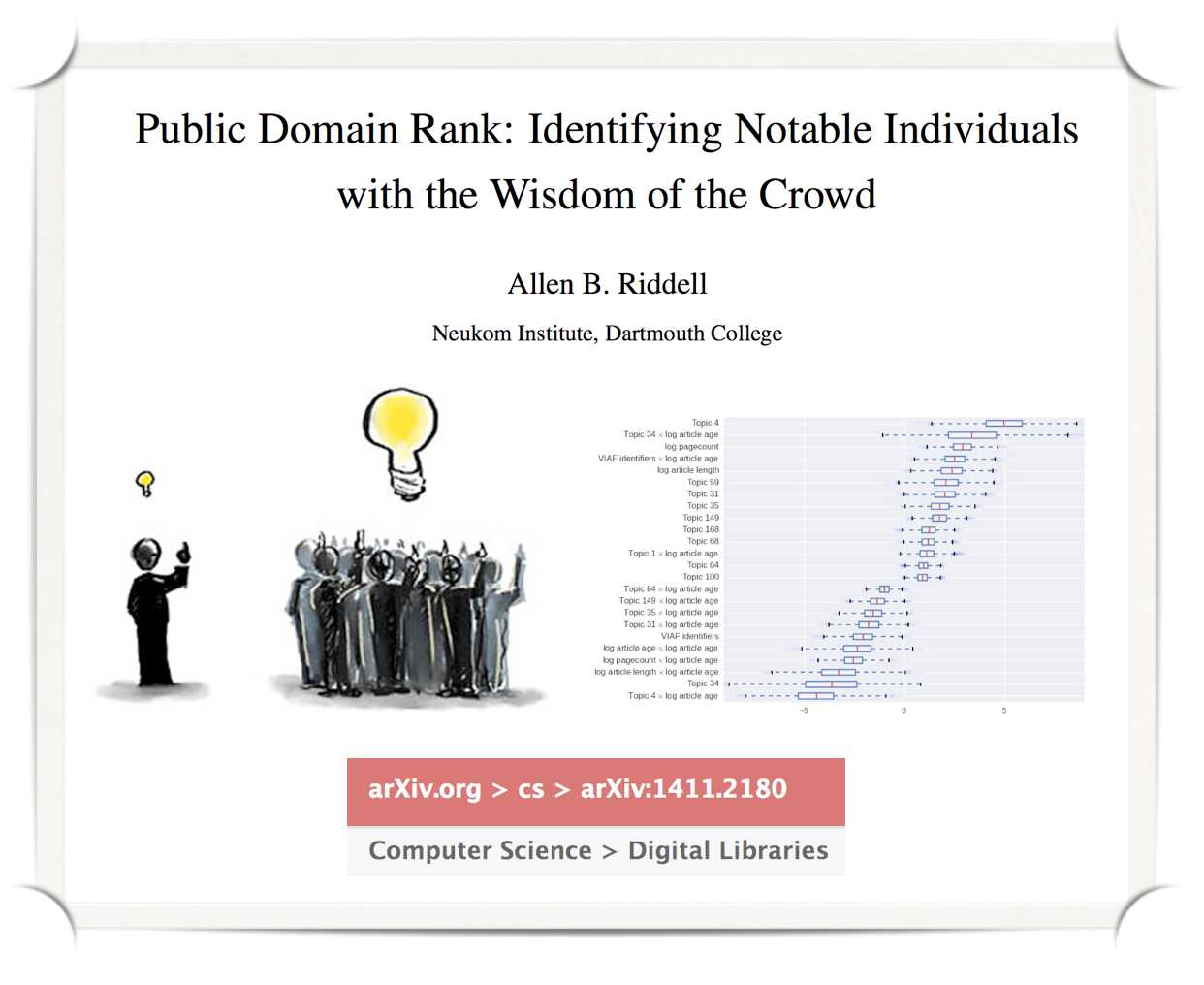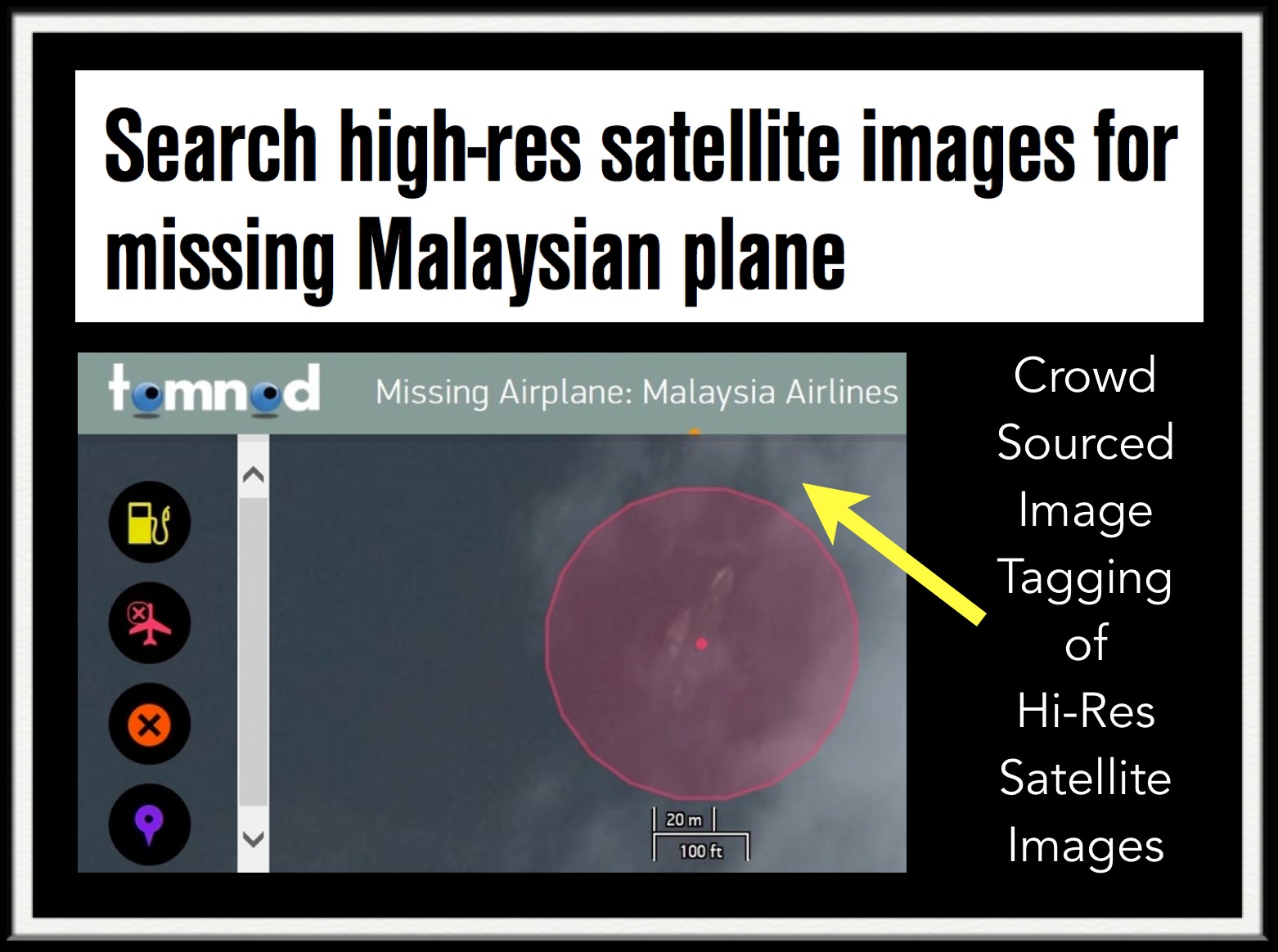ABSTRACT: Scholars have increasingly investigated “crowdsourcing” as an alternative to expert-based judgment or purely data-driven approaches to predicting the future. Under certain conditions, scholars have found that crowd-sourcing can outperform these other approaches. However, despite interest in the topic and a series of successful use cases, relatively few studies have applied empirical model thinking to evaluate the accuracy and robustness of crowdsourcing in real-world contexts. In this paper, we offer three novel contributions. First, we explore a dataset of over 600,000 predictions from over 7,000 participants in a multi-year tournament to predict the decisions of the Supreme Court of the United States. Second, we develop a comprehensive crowd construction framework that allows for the formal description and application of crowdsourcing to real-world data. Third, we apply this framework to our data to construct more than 275,000 crowd models. We find that in out-of-sample historical simulations, crowdsourcing robustly outperforms the commonly-accepted null model, yielding the highest-known performance for this context at 80.8% case level accuracy. To our knowledge, this dataset and analysis represent one of the largest explorations of recurring human prediction to date, and our results provide additional empirical support for the use of crowdsourcing as a prediction method. (via SSRN)
Tag: wisdom of crowds
LexSemble – A Crowd Sourcing Platform Designed to Help Lawyers Make Better Decisions
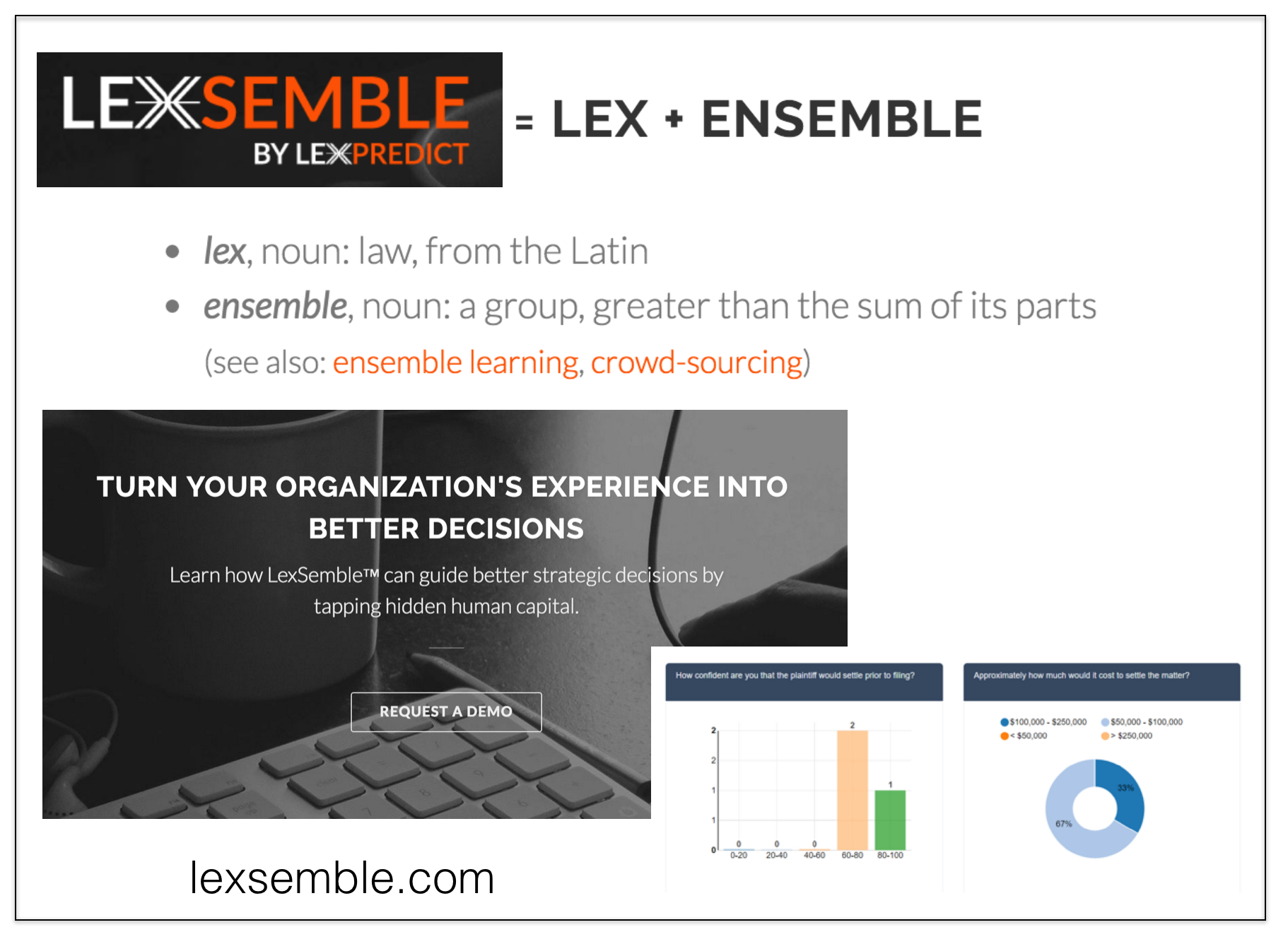
When it comes to prediction – law would benefit from better applying the tools of STEM / Finance / Insurance and so in that spirit — our company recently launched LexSemble and it allows for near frictionless crowd sourcing of predictions in law (and beyond). Many potential applications in law including early (and ongoing) case assessment in litigation, forecasting various sorts of transactional outcomes and predicting the actions of regulators, etc. It also has a range of machine learning capabilities which allow for crowd segmentation, expert weighting, natural language processing on relevant documents, etc.
Learn More: https://lexsemble.com/features.html
Experts, Crowds and Algorithms – AI Machine Learns to Drive Using Crowdteaching
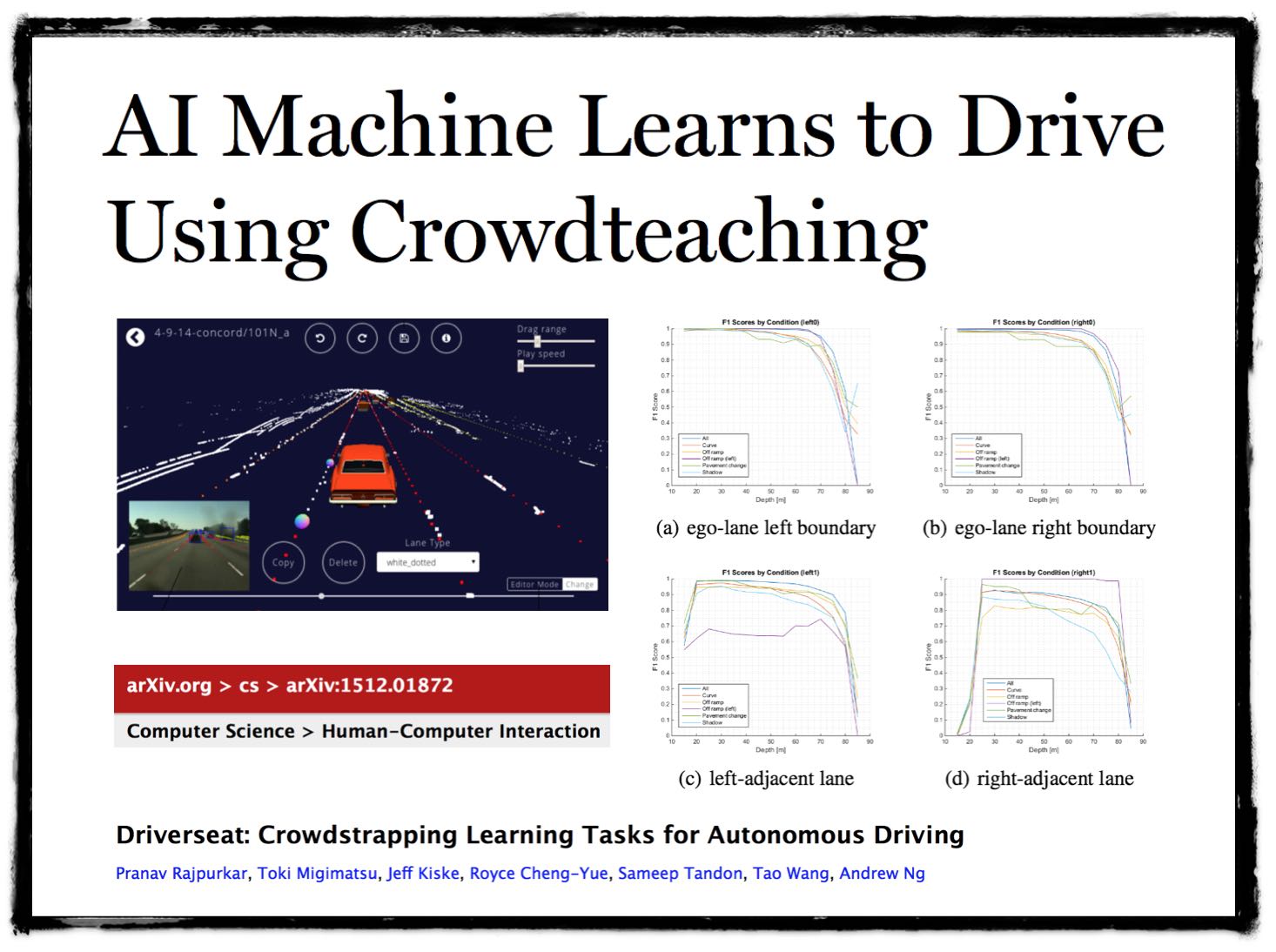
The example above is an algorithmic system that enhanced by the use of crowd based teaching. It is a useful example of the creativity employed by those in the machine learning research community. It is also instructive (at broader level) of the cutting edge approaches used in all of predictive analytics / machine learning.
In discussing legal prediction or the application of predictive analytics in law, we often try to start by highlighting The Three Forms of (Legal) Prediction: Experts, Crowds and Algorithms. These are really the only streams of intelligence that one can use to forecast anything. Historically, in the law – experts centered forecasting has almost exclusively dominated the industry. In virtually every field of human endeavor, there have been improvements (sometimes small to sometimes large) in forecasting which have been driven in the move from experts to ensembles (i.e. mixtures of these respective streams of intelligence – experts, crowds + algorithms).
Through our company LexPredict and in our research, we have been working toward building such ensemble models across a wide range of topics. In addition, we have engaged in a public display of these ideas through Fantasy SCOTUS, our SCOTUS prediction algorithm and through the identification of non-traditional experts (i.e. our superforecasters which — unlike most lawyers — are folks that have actually been benchmarked in their predictive performance). Finally, we have demonstrated the usefulness of SCOTUS prediction in a narrow subset of cases that actually move the securities market.
Why The Best Supreme Court Predictor In The World Is Some Random Guy In Queens (via 538.com)
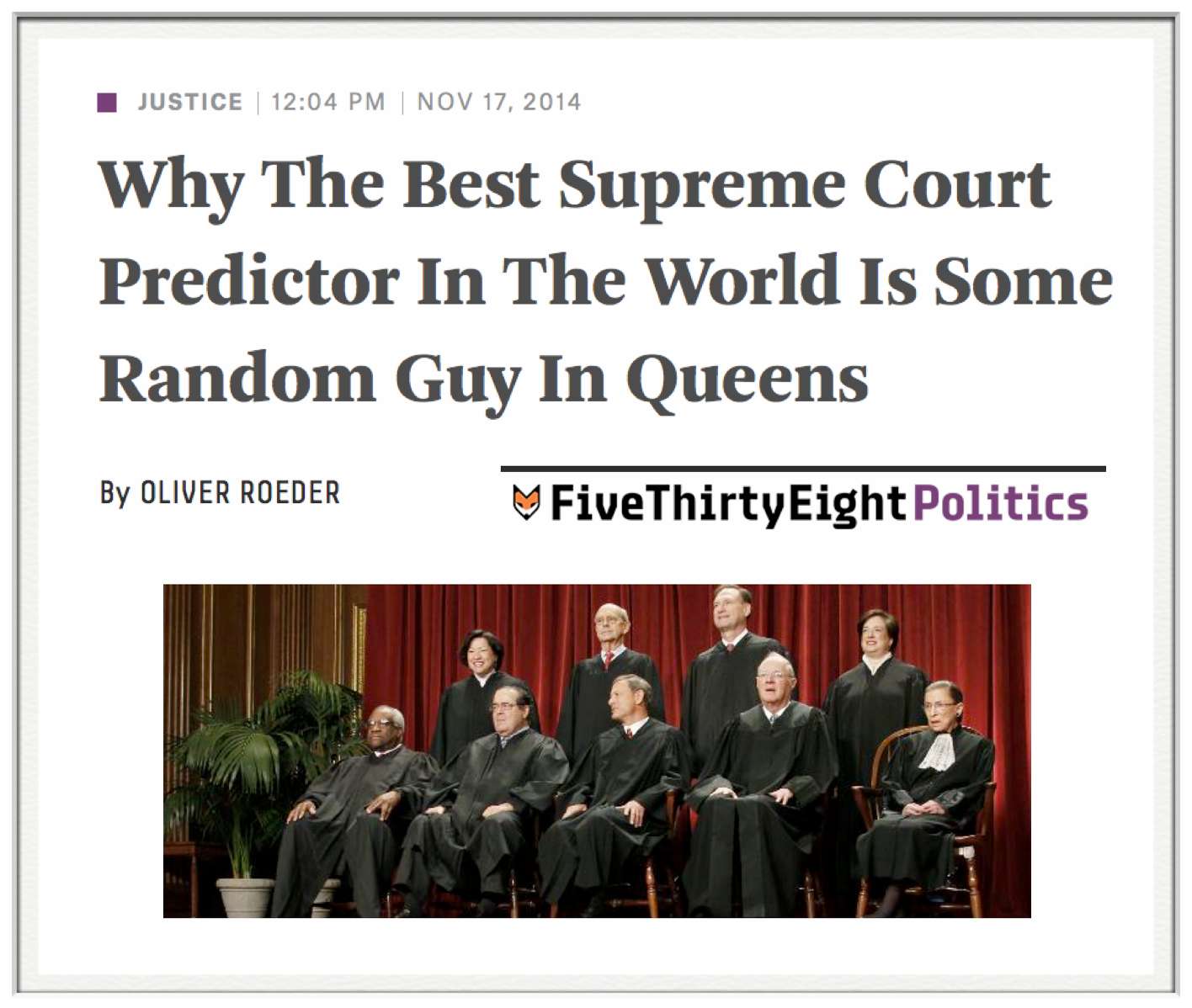 Nice coverage of the research in this area and our multi year research agenda attached to forecasting using the three known streams of intelligence (experts, crowds & algorithms).
Nice coverage of the research in this area and our multi year research agenda attached to forecasting using the three known streams of intelligence (experts, crowds & algorithms).
Announcing the All New LexPredict FantasySCOTUS – (Sponsored By Thomson Reuters)
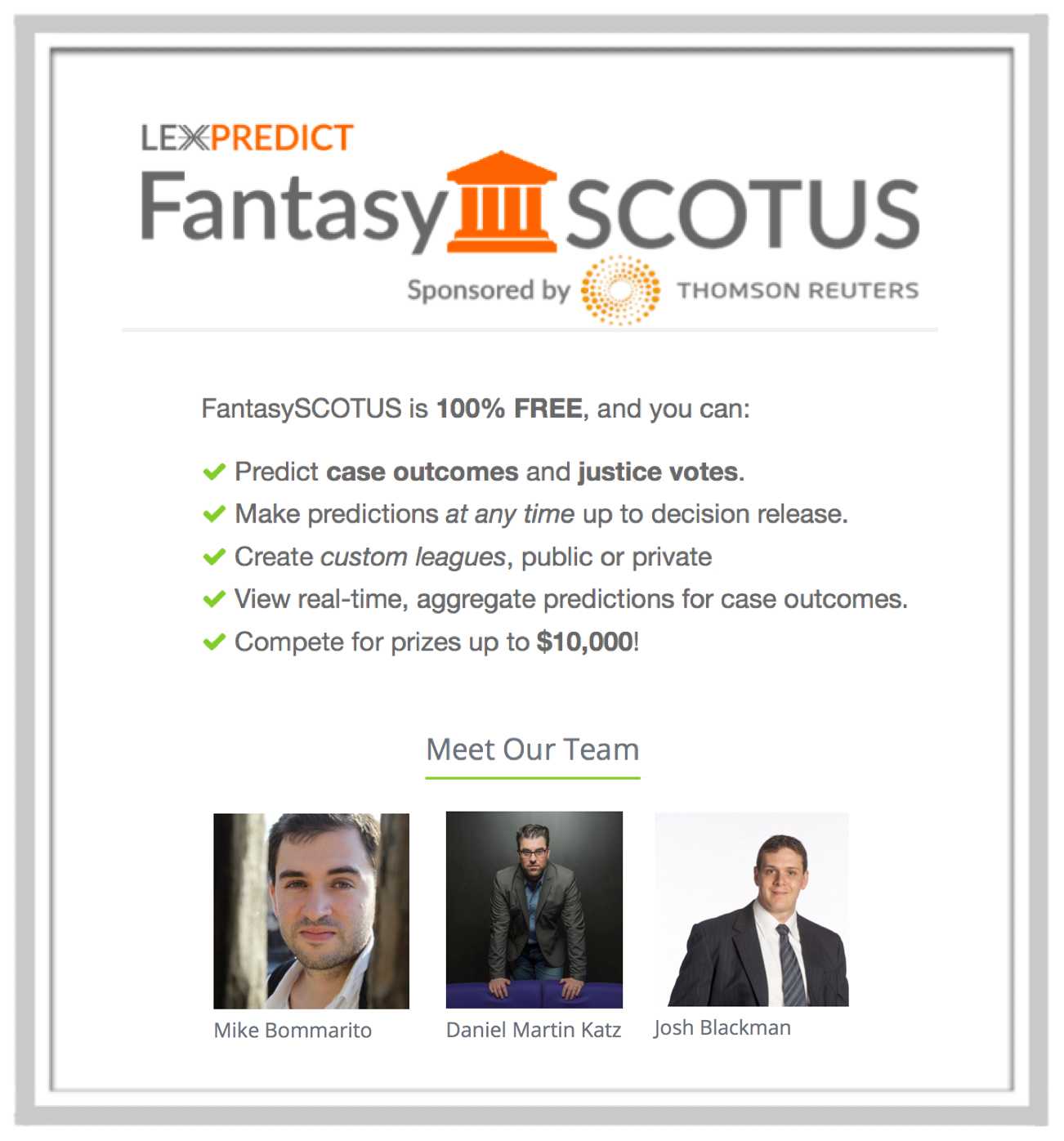 Today I am excited to announce that LexPredict has now launched the all new FantasySCOTUS under the direction of Michael J. Bommarito II, Daniel Martin Katz and Josh Blackman.
Today I am excited to announce that LexPredict has now launched the all new FantasySCOTUS under the direction of Michael J. Bommarito II, Daniel Martin Katz and Josh Blackman.
FantasySCOTUS is the leading Supreme Court Fantasy League. Thousands of attorneys, law students, and other avid Supreme Court followers make predictions about cases before the Supreme Court. Participation is FREE and Supreme Court geeks can win cash prizes up to $10,000 (many other prizes as well — thanks to the generous support of Thomson Reuters).
We hope to launch additional functionality soon but we are now live and ready to accept your predictions for the 2014-2015 Supreme Court Term!

